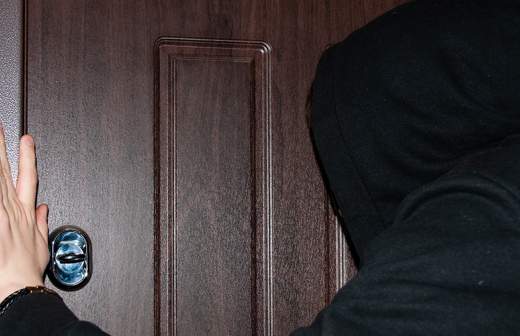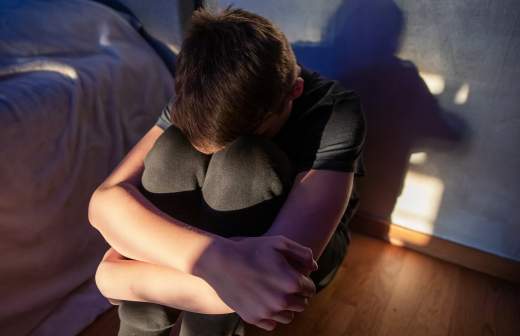Danger Service: how "sporties" became a regular structure of drug shops

The shadow movement of "sportics" is gaining momentum in Russia — physically prepared young people who are ready to maim and punish drug couriers who sold goods to the side, as well as non-paying clients, for money, Izvestia found out. The most recent such case occurred on March 12 in Moscow: four teenagers killed a pawnbroker in the Butovo Forest Park. The editorial correspondent decided to investigate the system from the inside and quickly received a "contract to punish" an undesirable client. About who the "sportics" are, why they are needed by drug stores and how much they are paid, is in the Izvestia article.
Who are the "sporties"?
An underground criminal movement is gaining strength in Russia, whose adherents beat up pawnbrokers ordered by drug dealers, Izvestia found out. They brutally deal with the victims, punishing them for "dumping" stores and embezzling money or drugs. The evidence of the "work" performed is captured on video and sent to the customers, who send money in return.
The members of these squads are physically well prepared, for which they received the name "sporties". In addition to violence, which sometimes ends in death, they set fire to the victims' cars or throw their relatives, for example, pig heads.
The most recent such story occurred on March 12 of this year, when the "sportics" beat a drug courier to death. It all happened on the territory of the Butovo Forest Park in Moscow.: The body of a man with signs of violent death was found there, the metropolitan Investigative Committee told Izvestia.
A criminal case has been opened on intentional infliction of serious harm to health, which negligently resulted in the death of the victim. Four teenagers between the ages of 14 and 18 have already been detained in the case, who, presumably, "fulfilled the order." Now the investigators are looking for other accomplices in the crime.
It is interesting that previously all teenagers were not noticed in illegal activities, they are characterized positively at school and at their place of residence.
Based on data from open sources, Izvestia counted about two dozen cases of people being beaten with "sports" over the past two years in Moscow, the Moscow region, Pervouralsk, Berezniki, Yekaterinburg, Novokuznetsk and other cities.
But most of these cases occur in Moscow. So, in January of this year, employees of the capital's Investigative Committee detained three members of the Sportik gang, who beat a pawnbroker to death in Bitsevsky Park. The victim, as reported in the Investigative Committee, was then found by a local resident walking with a dog. He called the police, who promptly detained all the participants in the attack. The victim was taken to the hospital, where he died.
The organizer of the attack, who was previously convicted of robbery, received information about the victim and her place of residence from the curators of the drug store: they sent him the data via Telegram, the source said.
In November 2024, another man was abducted and killed in Domodedovo, Moscow region. The video, which was filmed by the executors of the order, showed the last minutes of the victim's life.: His face is covered in blood, and there's a gun at his temple. The mother found the beaten son in the forest.
"I saw his legs and screamed," she told Izvestia. — He was lying as if alive, as if he was just lying down. Those who are currently in custody are the perpetrators, and I want to be told the truth about the customer. They don't understand that they didn't kill him, they killed me, his father, his brothers and sister. But most importantly, they killed their relatives and themselves.
According to the victim's mother, "there are no good or bad people, there are just people, and no one has the right to take someone else's life."
"I hope to get justice on earth, but there will be retribution anyway," she said.
Other creepy footage was recorded in Novokuznetsk: "sportics" beating up a pawnbroker who is holding a small child in her arms. It's snowing outside, a child's shoe has come off, he's screaming and crying, and at this time, healthy-looking men are hitting his mother with a hammer. Calling and humiliating the victim, they demand that she apologize. All this is recorded on the phone for a report to the customers.
How Izvestia caught the pawnbroker
Telegram has many channels where you can get a "contract" to beat up mortgagees, Izvestia found out. Anyone can apply for participation — it is enough to specify the city and age, as well as describe "work experience in this field," our correspondent found out after infiltrating several such channels (Izvestia has correspondence).
In one of them, our "bro," as his customers called him, was asked if he was ready to "break his fingers and set them on fire."
"I'm ready to break my hands, even my fingers," the newly minted "sportik" replied.
"Perfect," the customer praised.
This was followed by questions about whether the performer was ready to work in the suburbs, how many people were in his team, and whether there was a car. Then it was necessary to take a photo without a face and show biceps, after which the "bro" was told that he was suitable.
The job was found the very next day. To get started, you need to download a special application through which the customer sends geolocation — the place where you need to meet the victim. The contractor was promised 30 thousand rubles in cryptocurrency for his work.
The second part of the experiment was that the correspondent himself acted as the customer and tried to hire "sportics" allegedly to punish the objectionable. The perpetrators were found quickly, and their administrator via Telegram announced the prices: from 34 thousand rubles for minor beatings, 49 thousand for moderate severity, and 70 thousand rubles for severe beatings with a bat and brass knuckles. There are also "exclusive services": transportation to the forest — 75 thousand, torture — from 130 thousand, abduction and delivery to the customer — 100 thousand rubles.
"Tougher working methods are negotiated individually. Decide which one suits you best," the customer suggested.
The "performer" chose light beatings. They promised to transfer the money to a crypto wallet.
The fake "sportik" went to one of the capital's parks to meet with the victim. The 18-year-old "Target" was digging up something at that moment. When the young man saw people walking towards him, he took to his heels — he had to run after him and explain that no one would touch him. When questioned by journalists, he said that "he didn't throw anyone and he doesn't know who ordered it."
The rights of "consumers"
The "sportik" criminal movement appeared in response to new drug trafficking mechanisms, when more and more transactions began to be carried out through bookmarks, Egor Panin, partner of the Avex Yust law firm, told Izvestia. The drug shops needed physically strong guys who were ready to solve problems with consumers and "kladmen."
— The main task of the "sportics" is to work on the order of drug shops and, for a fee, perform services related to intimidation, damage to property, most often through arson, — said the lawyer. — This has nothing to do with other similar movements, such as those that previously engaged in catching pedophiles. Those groups tried to take over the functions of law enforcement agencies, acting in violation of the law.
In the case of the "sportics", the picture is different: their actions are not aimed at fighting crime, but at working within the criminal system itself, Egor Panin explained.
— The Sportics do not fight drug trafficking or drug addicts. They chose for themselves the role of the "security service" of the drug business, became part of its structure. There is no ideology of fighting drug trafficking in their actions, but there is a pragmatic approach to becoming an integral part of the criminal business," the expert said.
For their actions, given the connection with drug shops, the sentence will be higher than the "average temperature in the hospital" for similar crimes, the lawyer believes. In addition, the investigators are likely to consider the possibility of attracting "sportics" to participate in an organized criminal community.
This means that they can be recognized as a structural unit of a criminal community and punished not only for individual crimes, but also for participating in a criminal organization. 210 of the Criminal Code of the Russian Federation, which provides for imprisonment for a term of seven to ten years with a fine of up to 3 million rubles.
Переведено сервисом «Яндекс Переводчик»











